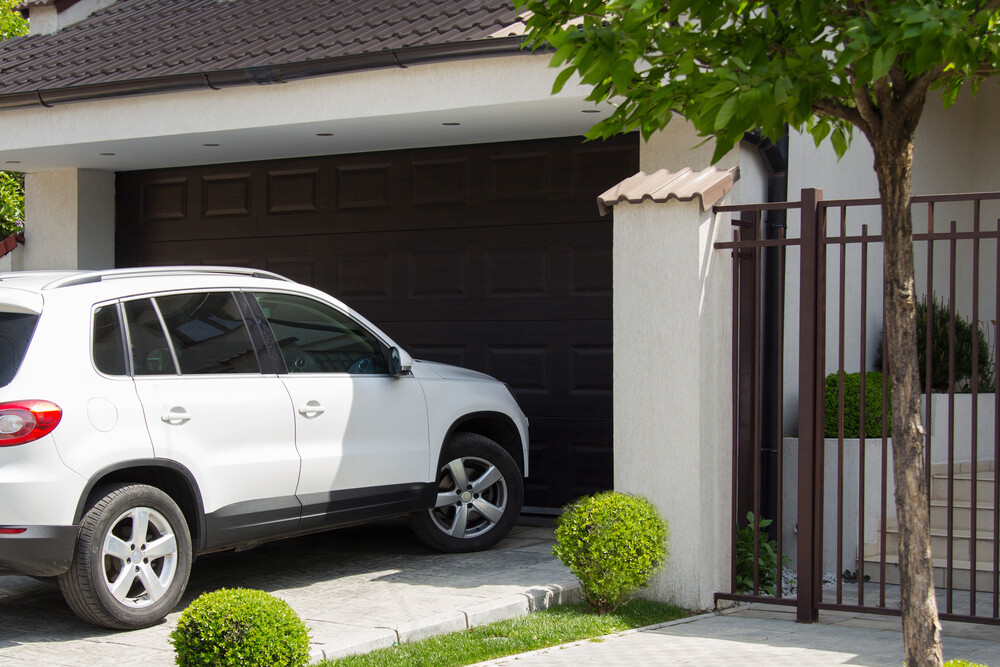It’s an appropriate question. Many people have homeowner’s insurance. But what those insurance policies cover is often another question. You need to know – is your garage door covered? As a homeowner, you always want to make sure your home stays protected in case of unexpected damage, and your garage door is included in that equation.
While homeowners’ insurance provides peace of mind, there may be outstanding questions as to whether that coverage protects your garage door. Considering your garage door is one of the most important doors in your house, we would certainly hope so, but let’s dig a little deeper. When damage does occur, you could be left wondering whether you’re fully covered. And that’s the last thing you want.
In those instances, it’s important to understand the intricacies of homeowners insurance — such as when you should file a claim, what damages are covered, and how that coverage differs when it comes to attached vs. detached garages. While most homeowners have an attached garage, the rules are different depending on your specific policy.
Should You File a Claim?
Have a close look at your policy. If your policy does cover your garage door, consider filing a homeowner’s insurance claim as quickly as possible. Aim to get the maximum for your garage door. Why? Because your policy may include expensive deductibles. If your deductible outweighs your repair cost, it may be best to simply get a new door. Make sure to closely examine your policy specifics to determine if a repair or a replacement garage door is your best option.
Will My Insurance Cover It?
Consider that the world of homeowner’s insurance is big and broad. The term “damage” is interpreted in many ways depending on the insurance company and policy. Damage could essentially mean many things. Still, there are specific scenarios in which a homeowner can usually expect their homeowner’s insurance to kick in and fit the bill. Let’s take a closer look at them.
Damage Caused by a Vehicle
Are you surprised to learn that accidents involving vehicles and garage doors happen all the time? Probably not. You are in a hurry and the next thing you know you’ve backed through your garage door. It’s happened to the best of us. Especially in harsh weather conditions like snow, ice, and low visibility. Fortunately, in many cases, your homeowner’s insurance will cover you backing into your door. Just keep in mind that if someone who doesn’t live in your home hits your garage, their auto insurance should cover the damage. Your own homeowner’s insurance likely won’t.
Damage Caused by a Break-in
Unfortunately, this also sometimes happens to the best of us. Theft. No matter how nice your neighborhood is, theft happens. But what happens when it does? Your garage is an extension of your home. If your homeowner’s insurance covered damage relating to a break-in elsewhere in your home, then it will also likely cover your garage door. In some cases, it may also cover the items stolen from your garage. Just consider your level of coverage if you have valuables in your garage. If you plan to store valuable items in your garage, you may want to increase your coverage for stolen property. It certainly is worth looking into.
Damage Caused by Natural Disasters
Mother nature sometimes doesn’t pull her punches and your garage door might end up on the receiving end of a wicked left hook. Fortunately, damages caused by lightning and severe weather will usually be covered by homeowners’ insurance. However, the coverages for individual natural disasters differ — while you may be protected from wind and lightning, flooding might not be a part of the policy. That’s why we’ve got to keep mentioning the importance of thoroughly reading the details within your policy to ensure you’re covered.
Damage Caused by Fire
House fires are generally covered in most homeowners’ insurance policies. Fires can be scary and severely damaging to your home. If the worst does happen, you can at least have confidence knowing you won’t be stuck paying the entire bill and that your garage door will be covered in repairs. It is important to note that your policy may cover a housefire but not a wildfire. We’ve got a handy guide on how to keep fires out of your garage!
Attached vs. Detached Garage Coverage
Since detached garages are essentially separate buildings, policies become more complicated. With an attached garage, your garage door is considered a part of your home and is usually covered by the details outlined in your homeowners’ insurance policy. Whatever happens to your garage in that scenario has also happened to your home. Detached garages are separate from your home. This creates some questions regarding what is and is not covered in your policy.
Usually, an “other structures” policy extends coverage to buildings separate from your home. Other structures could include sheds, fences, pools, and detached garages. These policies will cover damage for detached garages but usually at a lower percentage than those that are a part of your home. If you have or are considering building a detached garage, consider coverage that applies to “other buildings” on your property.
Each insurance policy differs slightly, so some damages may be covered while others may not. Trying to decide which coverages are good for your situation can be challenging because many of these factors — like natural disasters and break-ins — may seem out of your control. It’s important to focus on the aspects you can control, like investing in a quality garage door that will hold up well to the elements. And that’s where we come in. For professional installation of a garage door, you can rely on, contact Prestige Door.

